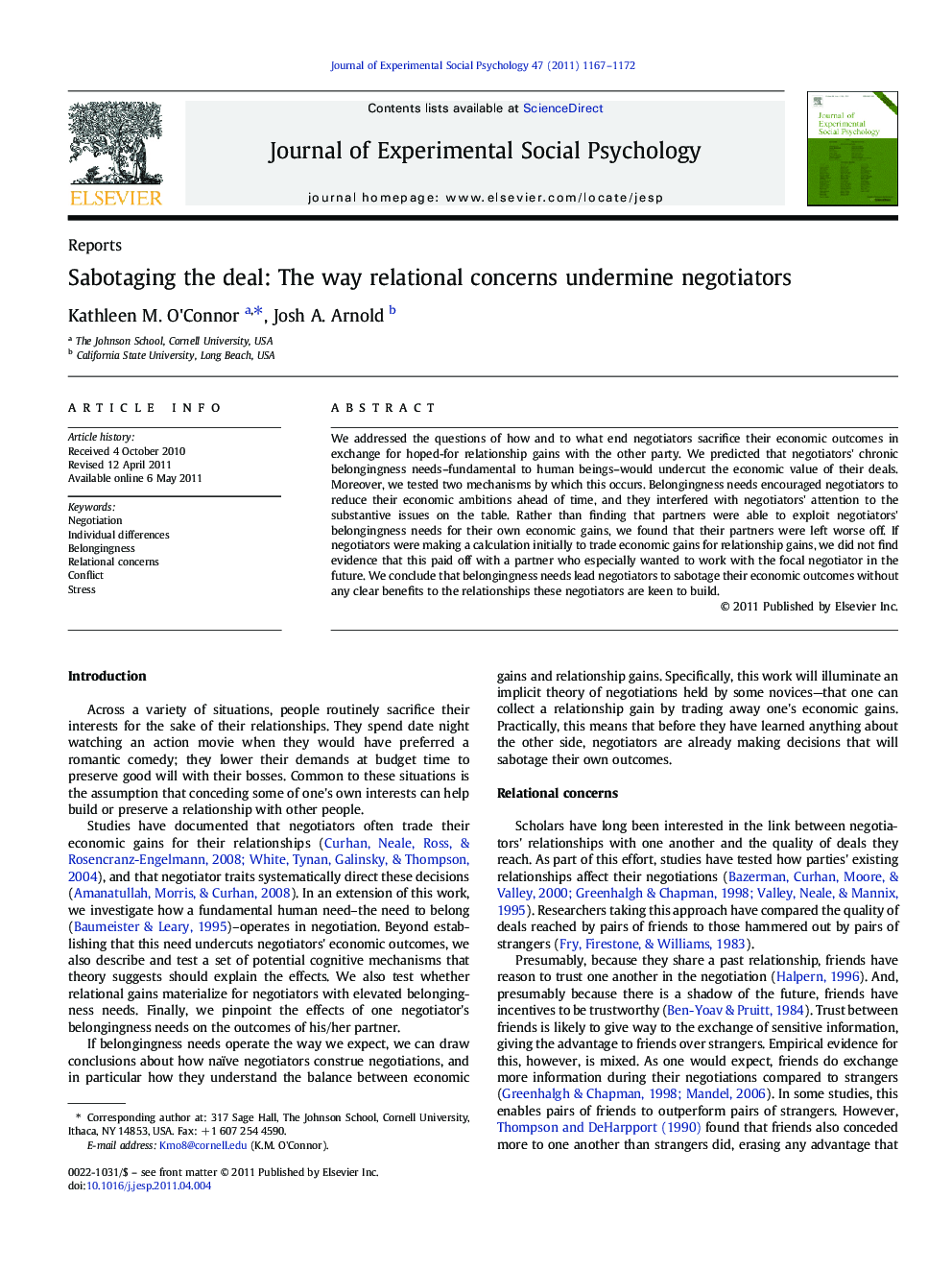| Article ID | Journal | Published Year | Pages | File Type |
|---|---|---|---|---|
| 947982 | Journal of Experimental Social Psychology | 2011 | 6 Pages |
We addressed the questions of how and to what end negotiators sacrifice their economic outcomes in exchange for hoped-for relationship gains with the other party. We predicted that negotiators' chronic belongingness needs–fundamental to human beings–would undercut the economic value of their deals. Moreover, we tested two mechanisms by which this occurs. Belongingness needs encouraged negotiators to reduce their economic ambitions ahead of time, and they interfered with negotiators' attention to the substantive issues on the table. Rather than finding that partners were able to exploit negotiators' belongingness needs for their own economic gains, we found that their partners were left worse off. If negotiators were making a calculation initially to trade economic gains for relationship gains, we did not find evidence that this paid off with a partner who especially wanted to work with the focal negotiator in the future. We conclude that belongingness needs lead negotiators to sabotage their economic outcomes without any clear benefits to the relationships these negotiators are keen to build.
Research Highlights► Negotiators’ trait-based belongingness needs undermine their economic outcomes. ► Belongingness needs encourage negotiators to cut their pre-negotiation economic ambitions. ► These needs also distract the negotiator from the substantive issues. ► The partners’ outcomes also are relatively low when the negotiators’ needs are high. ► Partners are not more likely to want to work with the negotiator in the future.
